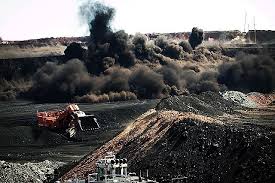Other

Exploring the impact of irresponsible mining on local communities

In this article, we explore the multiple consequences that unethical and unsustainable mining can have on local communities.
Environmental degradation and health risks
One of the most direct impacts of irresponsible mining is environmental degradation. Poorly managed mining operations can lead to deforestation, soil erosion, and pollution of local water bodies. As toxic chemicals such as mercury and cyanide are often used in mining processes, these can leak into rivers and groundwater if not disposed of appropriately. This contamination not only poisons the local flora and fauna, but also poses a significant health risk to human communities relying on these water sources for drinking, agriculture, and fishing. Naturally, this is extremely dangerous for local communities, but the pollution can also spread across the world.
Communities living near mining sites often experience severe health issues due to exposure to hazardous substances. Alongside dangerous water, which can result in gastrointestinal diseases and other health complications, airborne pollutants from mining operations such as dust and emissions from heavy machinery can lead to respiratory problems. Long-term exposure to these toxic chemicals and gases can also increase the risk of cancer and neurological disorders.
Economic displacement and social disruption While mining operations can bring jobs and economic opportunities to rural and undeveloped regions, irresponsible practices often result in economic displacement. This is because the local communities may find their traditional means of livelihood, such as farming or fishing, disrupted by mining activities. Additionally, mining companies may fail to provide adequate compensation or alternative employment, leaving the locals in financial hardship unless they work in unethical conditions in the mines.
When mines are established in new locations, it can often lead to social and cultural disruption. Influxes of workers can strain the local infrastructure and resources, leading to conflicts over land use and resource allocation. Furthermore, traditional ways of life and cultural heritage sites may be threatened or destroyed, leading to a loss of cultural identity for indigenous and local populations.
Unfortunately, despite the wealth generated by mining, local communities don't tend to benefit from the industry. Profits are rarely invested into the local economy, and this can exacerbate existing inequalities and lead to resentment and social unrest.
Responsible mining practices
To mitigate these impacts, it's crucial for mining companies to adopt responsible practices. By implementing sustainiahLe mininc practice, it's possible to minimise environmental damage while protecting the local water sources, wildlife and people from exposure to toxic waste.
Local communities can also benefit from positive engagement, where they have a voice in the decision-making processes and receive transparent communication about mining activities. Of course, providing fair compensation and alternative livelihood opportunities for displaced communities is also essential to avoid the exploitation of local populations.
Last but not least, mining companies must enforce strict health and safety measures to protect both workers and local residents from harm, whether they choose to work in the mines or live in close proximity to them. There is also a social responsibility mining companies must take to protect the wider world from the negative impacts of their operations, too.
A brighter future It's true that irresponsible mining practices pose significant challenges to local communities, with far-reaching economic, social, and environmental implications. However, by adopting responsible mining practices, we can ensure that the industry instead contributes positively to the development and well-being of affected communities.












